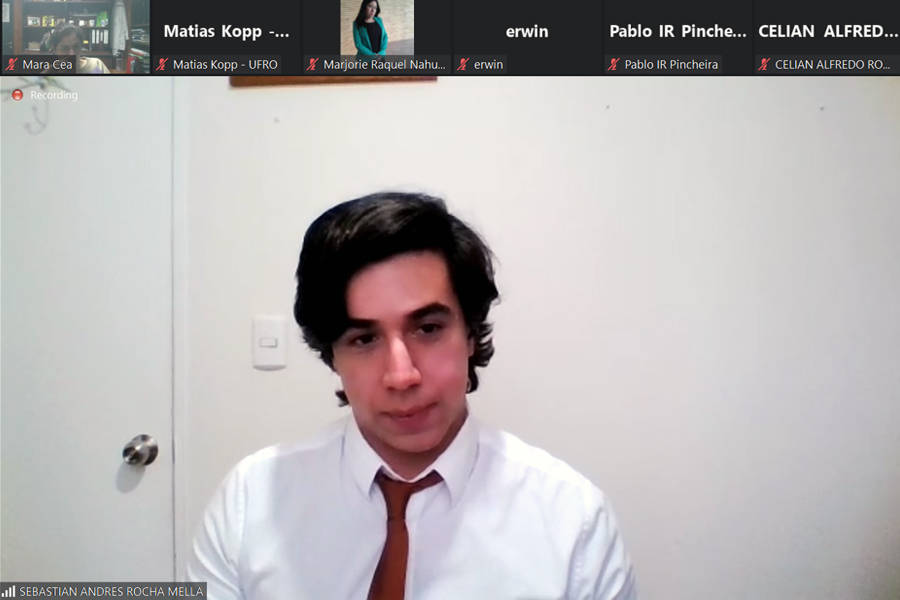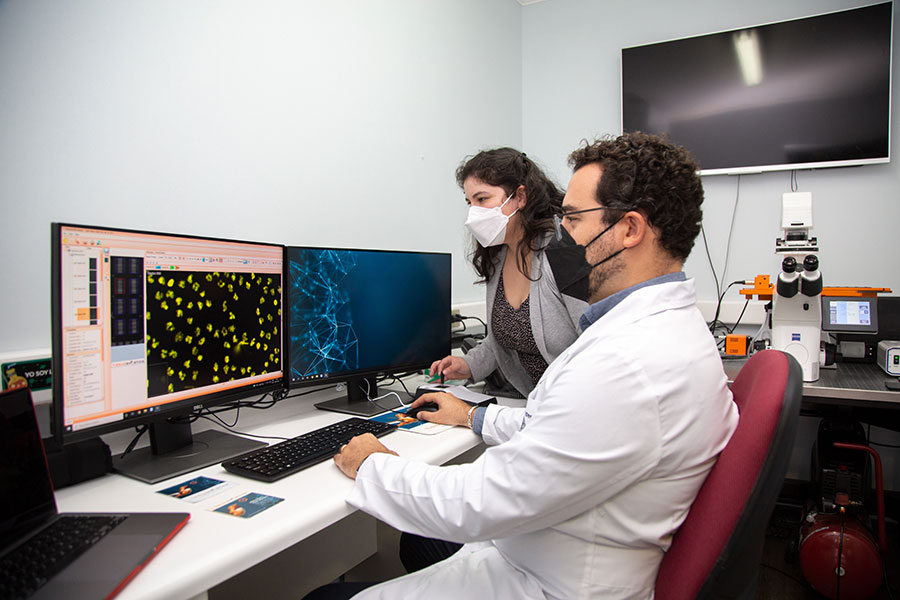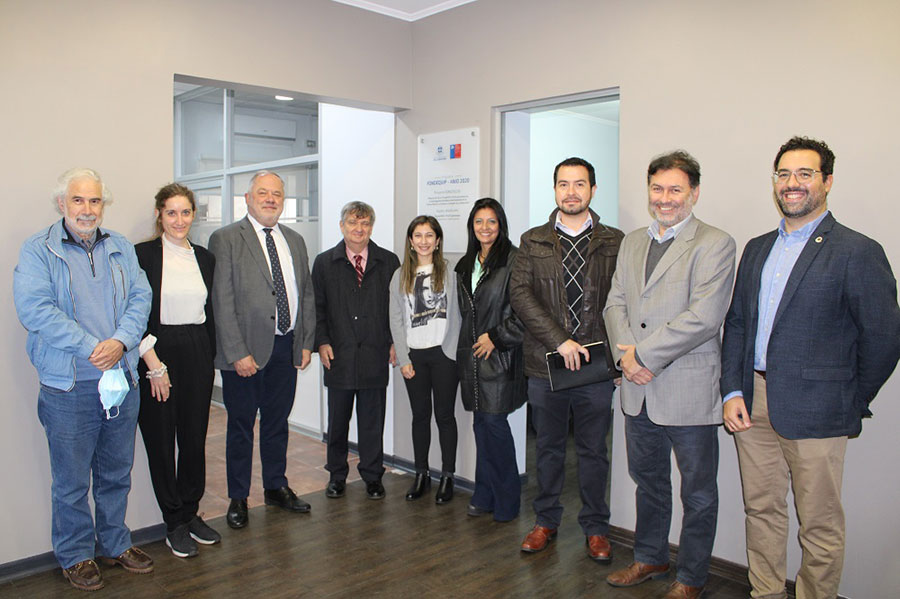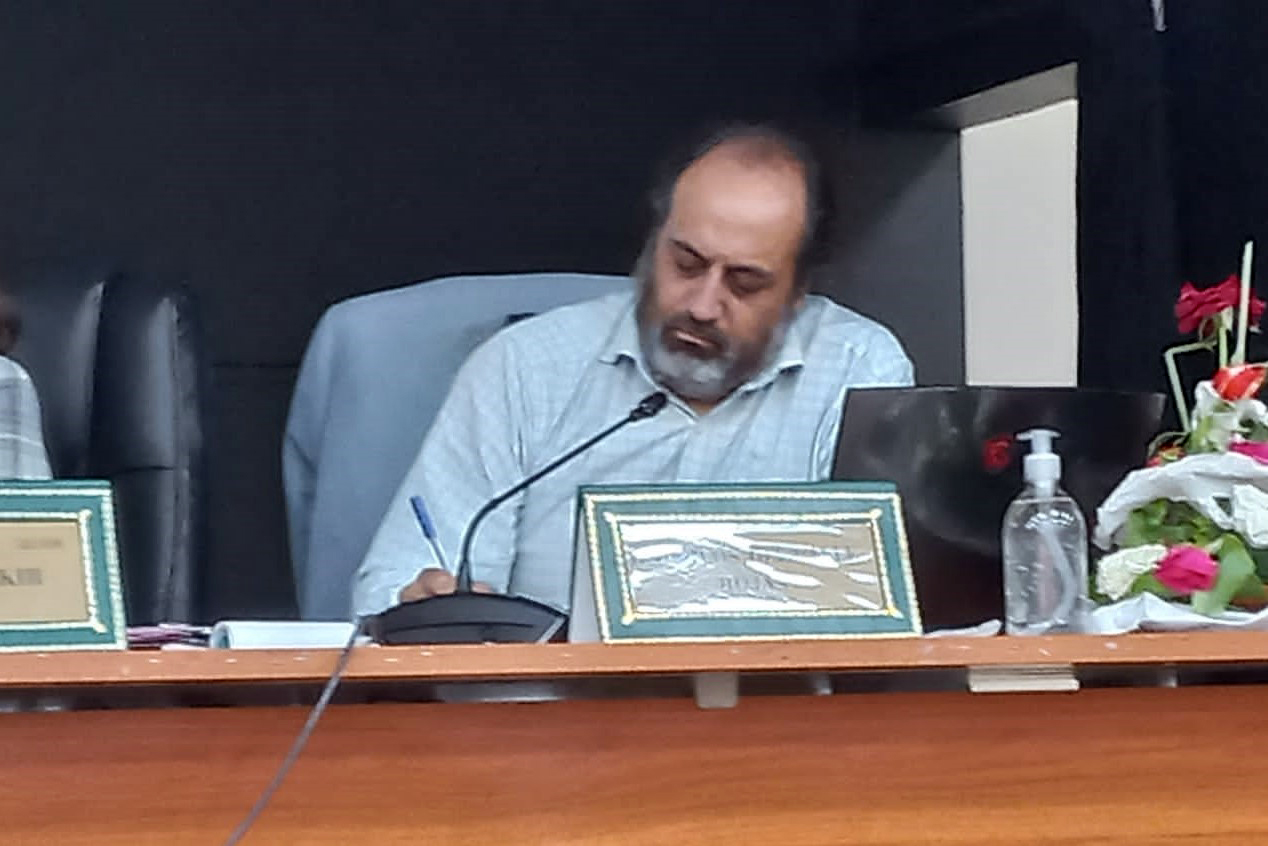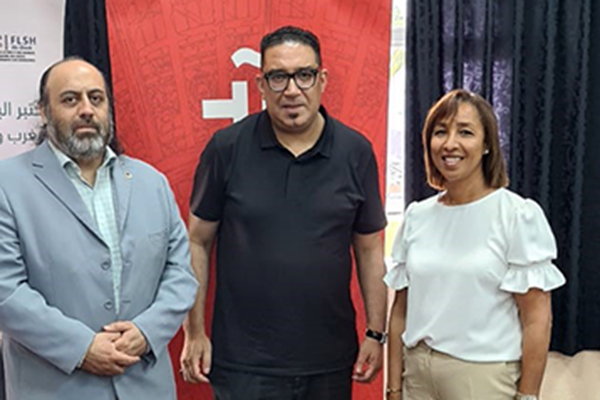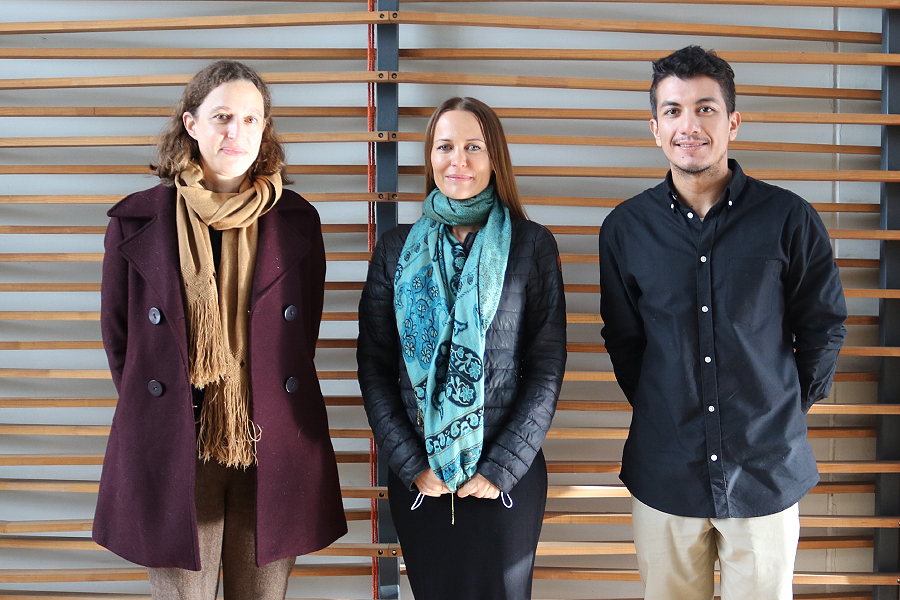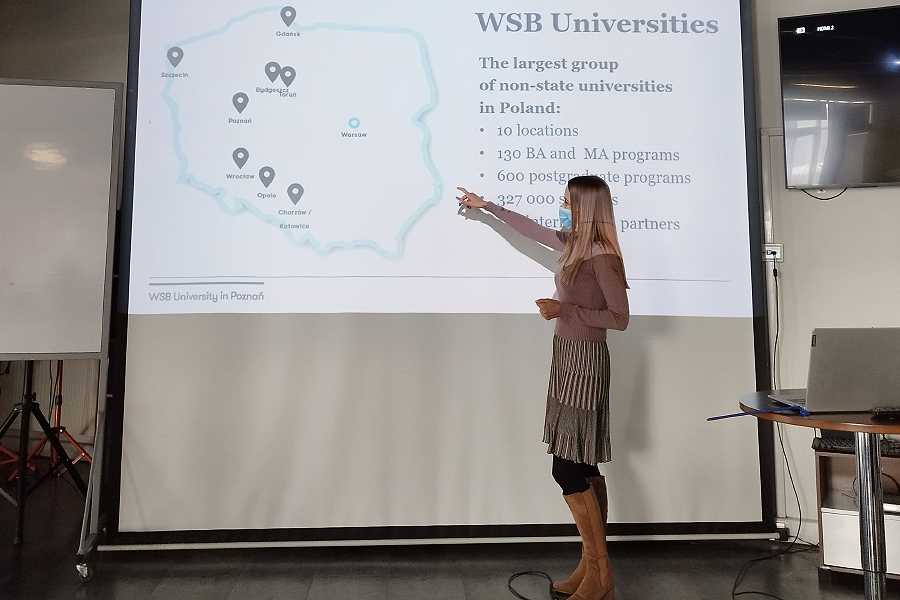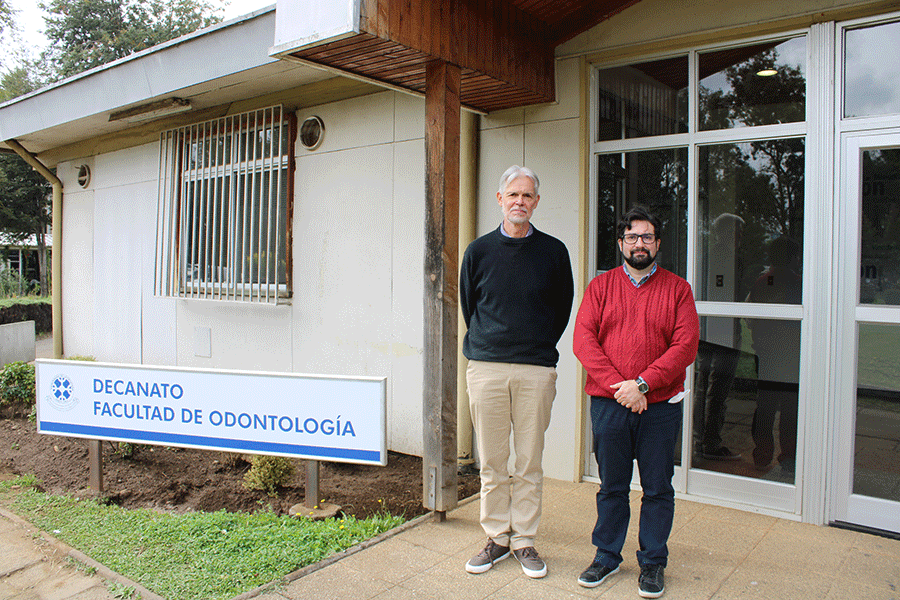|
What seemed to be a future innovation became a reality: the replacement of polyethylene terephthalate (PET), a plastic material used in the manufacturing of bottles, with a polymer extracted from sugar beets. |
Dr. Sebastián Rocha Mella is the fifth graduate of the Doctoral Program in Engineering Sciences with specialization in Bioprocesses of the Universidad de La Frontera (UFRO). In his doctoral thesis, he worked on finding a sustainable and environmentally friendly solution to the use of plastics. In this regard, Dr. Rocha points out that beet molasses, an industrial by-product, has a high sugar content. On this basis, a process was developed and assessed that is capable of transforming the saccharides contained in beet molasses into a 5-hydroxymethylfurfural (HMF) compound through the use of microwaves, a technology that allows the dehydration of these sugars, a procedure that leads to obtaining HMF. HMF is a compound in great demand these days, although in reality, it is an intermediate product. Thus, Dr. Rocha comments: “The work for my thesis shows that after the extraction of HMF and the biochemical oxidation by microorganisms, it is possible to obtain products of even greater value, obtaining 2.5-Furandicarboxylic acid (FDCA). Its main characteristic is that it is a raw material in the production of plastics, called Polyethylene Furanoate (PEF), a plastic made from biomass, which is very different compared to the current plastics, mainly derived from petroleum.” This becomes even more relevant since the annual plastic consumption in Chile reaches 990,000 tons, of which only 83,700 tons are recycled. That is an equivalent of only 8% of the total, according to a study carried out in 2019 by the Chilean Plastics Industry Association (ASIPLA). Considering the percentage of recycled material, it is also clear that within the total amount of plastic material of household origin, PET bottles represent 52.2 % of the total. Regarding the impact of his research, Dr. Rocha points out: “We need to develop technologies that are efficient and environmentally friendly, being aware that we cannot always depend on fossil resources. I am sure that this study will directly contribute to this issue and to the development of new technologies to produce biomass fuels and materials that are more sustainable and accessible for countries like Chile, since we do not have direct access to petroleum, which is the primary basis for the production of PET.” A NEW DOCTOR IN BIOPROCESSES AT UFRO “I strongly believe that technological development is what will help our country to move forward,” says Dr. Sebastián Rocha Mella, the fifth graduate of the Doctoral Program in Engineering Sciences with specialization in Bioprocesses of the Universidad de La Frontera. One of the obstacles he had to overcome to reach his goal of developing research with a social and environmental impact and obtaining his doctor’s degree was the pandemic and the restrictions that came with it. Nevertheless, although he had to carry out his experiments in the capital city, Santiago de Chile, in the middle of this complicated situation and although he lost the opportunity to go to the University of Groningen (Netherlands) due to the pandemic, his research went much better than he thought it would under these circumstances. With regard to his presentation, he indicates: “Considering all presentations I had to give in my life, I had never been as nervous as in this one. However, I was also confident that the result would be good and I knew that I would be much calmer after finishing this final exam. Now I am planning to open a new line of research, because although my work is similar to what was done at the Waste and Energy Management Center, there was nothing specific yet regarding what I do. I think that this is a great opportunity to open a new research line and to diversify the possibilities of creating high-impact studies beyond the publications, because I strongly believe that technological development is what will help our country to move forward.” The evaluation committee consisted of Dr. Edgar Uquiche, the director of the doctoral program; Dr. María Cristina Area of the Argentinian university Universidad Nacional de Misiones; Dr. Danilo Pérez of the university Universidad Tecnológica Metropolitana in Santiago de Chile; and Dr. María Eugenia González and Dr. Gustavo Ciudad of UFRO. They graded Sebastián Rocha's degree exam with the best grade (7.0), becoming the fifth graduate of the Doctoral Program in Engineering Sciences with specialization in Bioprocesses of UFRO, under the guidance of his doctoral supervisor, the outstanding academic Dr. Mara Cea Lemus. Written by: Doctoral Program in Engineering Sciences with specialization in Bioprocesses, UFRO |
|
The TissueFAXS i PLUS is a high-end inverted fluorescence and brightfield system for the scanning and analysis of slides, cytospins, smears and tissue microarrays. It is the first device of this kind in Chile and the third in South America. |
The acquisition of this modern equipment by the Universidad de La Frontera (UFRO) was possible thanks to an approved equipment funding (‘Fondequip’) for a project presented within the ninth Competition for Medium Scientific and Technological Equipment. The author of this project is Dr. Nicolás Ottone, an academic of the Faculty of Dentistry and the Center of Excellence in Morphological and Surgical Studies (CEMyQ). His co-investigators in the Fondequip EQM200228 project called ‘Acquisition of a TissueFAXS i PLUS to potentiate interdisciplinary biomedical research at the Universidad de La Frontera and in the La Araucanía region’ are Dr. Mariano del Sol and Dr. Bélgica Vásquez of CEMyQ and Dr. Raúl Sánchez and Dr. Fabiola Zambrano of the Center of Excellence in Translational Medicine (CEMT). The use of the TissueFAXS i PLUS will allow to develop interdisciplinary research that will be available for professionals of the Universidad de La Frontera, as well as external researchers that require to use it. In addition, the researcher pointed out that “this equipment is capable of adapting a culture chamber and visualizing histomorphological changes in real time, based on the development of immunohistochemical and immunofluorescence analyses in the tissues we are studying. Thus, the potential of this tissue cytometer to perform multiple analyses on the samples analyzed offers the researcher significant benefits with direct impact on the possible findings, which we then can communicate to society.” INAUGURATION The inauguration of the TissueFAXS i PLUS took place at the Center of Excellence in Morphological and Surgical Studies, where the equipment is installed, with participation of the rector Dr. Eduardo Hebel and other university authorities, as well as researchers, graduate students and other international guests. “The acquisition of this equipment, of which we only have three in Latin America – two in Sao Paulo in Brazil and the other one at the Universidad de La Frontera in Chile – will certainly lead to great advances in biomedical research. But also in other fields, since it has an interdisciplinary use, especially in cancer research – cancer is one of the most common causes of death in our country,” Dr. Hebel pointed out. The Vice-rector for Research and Graduate Studies, Dr. Rodrigo Navia, emphasized: “This equipment will allow us to make progress in all areas of the field of bioscience, from projects in basic sciences to projects in even more specialized areas, such as dentistry and medicine. That is also why it is so important. I think it will be extremely useful for our university and it will give us the opportunity to publish in the leading journals, since we will be using this state-of-the-art equipment for our research.” WORKSHOP The TissueFAXS i PLUS was used for the first time at the ‘International Workshop on Tissue Cytometry’, organized by the responsible team of the project and carried out by the Austrian scientists Dr. Felicitas Mungenast and Mike Etrich of the company TissueGnostics, who installed the equipment and taught the researchers how to use it. Professor Henning Ulrich and the researcher Talita Glaser of the Institute of Chemistry of the University of Sao Paulo in Brazil, where another equipment of this type is located, were also part of the activities. Another purpose of the visit was to strengthen the joint research. In addition, future courses and sessions of training in the use of the TissueFAXS i PLUS are planned within the project Fondequip EQM200228, both online and in person. Written by: Soledad Millapan Sandoval |
|
The international cooperation agreements with Moroccan universities will benefit joint research and postgraduate activities. |
After the invitation of the Moroccan embassy in Chile, Dr. Carlos del Valle of the Universidad de La Frontera (UFRO) visited the country and participated in a variety of activities that allowed making progress regarding international cooperation with the Doctoral Program in Communications of UFRO, especially regarding research and postgraduate studies. The relations between the Doctoral Program of UFRO, which is led by Dr. Carlos del Valle together with the Chilean university Universidad Austral de Chile, and the Moroccan embassy date back to 2018, when they carried out several activities together. In this context, the objective of this visit was to open new spaces for bilateral cooperation. The visit included three cities, visiting the universities UFRO cooperates with: Sidi Mohamed Ben Abdellah University in Fez, Mohammed V University in Rabat, and Hassan II University of Casablanca. Apart from different meetings, Dr. del Valle held a conference in the second International Congress of the Moroccan Association for Iberian and Latin-American Studies: ‘Morocco and Latin-America: Common and imaginary heritage and crossed experiences’. In addition, he had the chance to get to know the University of al-Qarawiyyin, which was founded by Fátima al-Fihri in the year 859 and is known as the oldest university in the world. COOPERATION AGREEMENTS The Moroccan embassy and the Center for Culture in Chile facilitate the relations established between the Doctoral Program and the Moroccan universities. Currently, UFRO has a cooperation agreement with the Abdelmalek Essaâdi University in Tetouan, and another agreement draft with the Hassan II University of Casablanca, which they started to work on after the visit of Dr. del Valle. The ambassador of Morocco to Chile, Kenza El Ghali, pointed out that the links with UFRO facilitate cultural exchange and open spaces for new ideas of cooperation, as for example the establishment of a Moroccan Chair or the exchange of doctoral students. “In order to strengthen this relationship and to work on the Chair, we elaborated an agreement between our Center for Culture and the university,” the diplomat commented, indicating that there are several issues of common interest. She added that one of the aims is to generate student mobility opportunities on both sides, in order to share each country’s knowledge and experiences. According to Dr. del Valle, the agreements with these universities focus on joint research, publications and future cotutelle and double degree agreements, especially in the fields of communications and culture, as well as communication in inter- and multicultural contexts. “We have a lot in common and we want to make progress regarding compared studies, especially in inter- and multicultural contexts, for example considering policies with the Berbers or Imazighen, besides the differences between both groups,” he indicated. Regarding the activities carried out during his visit, Dr. del Valle commented: “We made progress with the two universities and during our visit we were able to get in direct contact with the researchers and to start a new partnership with one more university”. He also pointed out that in the second semester this year, one of the students of the doctoral program in communications will go to the Abdelmalek Essaâdi University in Tetouan in Morocco, in order to work on his research and different publications. MOROCCAN CHAIR Dr. del Valle explained that they are working on a specific agreement to establish a Moroccan Chair for the doctoral program that will allow to hold conferences and seminars with Moroccan academics, as well as to work on joint research and publications, especially in the field of inter- and multicultural communication. “At our university, we need a wider perspective of interculturality, which is already theoretically and politically exhausted and requires new explanatory models,” he explained. Written by: UFRO Communications Office |
|
During her visit, Dr. Edyta Wojtyla gave a presentation about her university for the academics and researchers of UFRO, highlighting important areas of development. The history of WSB University in Poznan began in 1994 and this year, it celebrates its 28th anniversary. |
The vice-dean of the Faculty of Finance and Banking of WSB University in Poznan (Poland), Dr. Edyta Wojtyla, visited the Universidad de La Frontera (UFRO) in Chile in order to get to know the university and to establish valuable links of cooperation. Therefore, she carried out a series of activities, focusing on two areas: research and academic work. During her visit, the representative of the Polish university met with Dr. Eduardo Hebel, the rector of UFRO, Dr. Lorena Vieli, the director of the International Affairs Office, and César Miranda, who is in charge of the Erasmus+ Programs. In addition, she carried out different activities for UFRO academics and researchers, presenting her university and the opportunities it offers as a partner university for Erasmus+ projects. In this regard, Dr. Lorena Vieli, the director of the International Affairs Office, explained: “The Universidad de La Frontera got invited to this Erasmus+ project and Dr. Edyta Wojtyla is our first visitor out of several ones. Originally, we planned these activities for 2020, but they could not take place because of the pandemic. But now we are resuming our activities and we invite our academics to visit WSB University in Poznan and to get to know our common fields and interests”. WSB UNIVERSITY IN POZNAN During her visit, Dr. Edyta Wojtyla gave a presentation about her university for the academics and researchers of UFRO, highlighting important areas of development. The history of WSB University in Poznan began in 1994 and this year, it celebrates its 28th anniversary. Today, it is known as one of the leading private universities in Poland, with distinctions, accreditations and national and international certificates that reinforce its prestige. “It is worth mentioning that Erasmus+ projects do not only concentrate on the visits, but also help you to strengthen your academic skills, your personal development and to work on your intercultural competencies. They help you to acquire the skills you need to be successful in the current context of globalization,” explains César Miranda, inviting the UFRO community to participate in these opportunities of internationalization. Written by: UFRO Communications Office |
|
The book focuses exclusively on the field of dentistry, with examples in each chapter, what makes its practical orientation even more useful for the ones who want to enter the world of economic evaluation. |
The editors of the book ‘Introduction to Economic Evaluation in Oral Health Care’, which was published by the prestigious publisher Springer Nature, are the researchers Dr. Carlos Zaror of the Department of Pediatric Dentistry and Orthodontics, Faculty of Dentistry, Universidad de La Frontera (UFRO) in Chile, and Dr. Rodrigo Mariño of the Melbourne Dental School, University of Melbourne in Australia. According to Dr. Zaror, economic evaluation in the field of health allows comparing different therapeutic alternatives in terms of their costs and effectiveness. Therefore, it is very useful in the decision-making regarding the implementation of certain interventions. Given its importance and the need to address this issue, especially in oral health, both researchers, driven by their experience and knowledge in economic evaluation, decided to publish this book, which has 13 chapters. “The idea for this book started with the work we carried out together with Dr. Carlos Zaror over time. We realized that economic evaluation in the field of health increased over the years, but the field of dentistry was falling behind compared with other medical disciplines. That is why we started to work on this book, not for training specialists in economic evaluation, but for the professionals to understand the process. It contains basic aspects with practical examples, so that people with no previous training in health economics can understand them,” explained Dr. Mariño. For the publication of this book, both editors invited international experts from Australia, Chile, the United States, England and Sweden to collaborate and write some of the chapters. “The practice-oriented nature of this book is very useful for those who are new in the field of economic evaluation, but it is also important for decision-makers in healthcare, when they need guidance on how to interpret the evidence available on economic evaluation. To this end, the last three chapters of the book focus on how to use the existing evidence to make decisions, whether clinical or from the point of view of public health in general,” Dr. Carlos Zaror pointed out. Besides the international positioning of the editors in the field of economic evaluation in oral health care, this publication also allows them to build a cooperation network with the experts, researchers and institutions that participated in this publication. The book is available in Springer Nature, under the following link:
|





